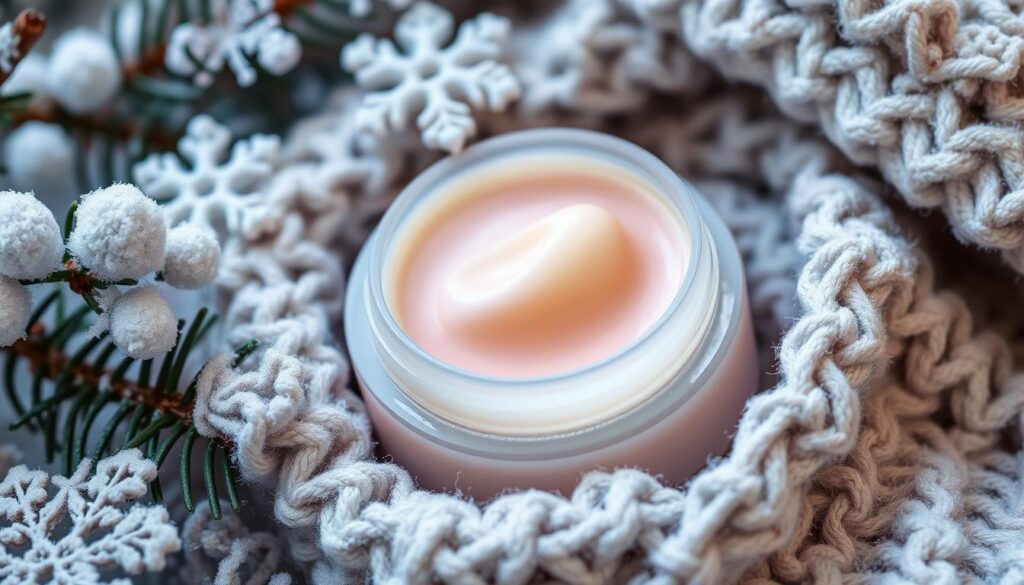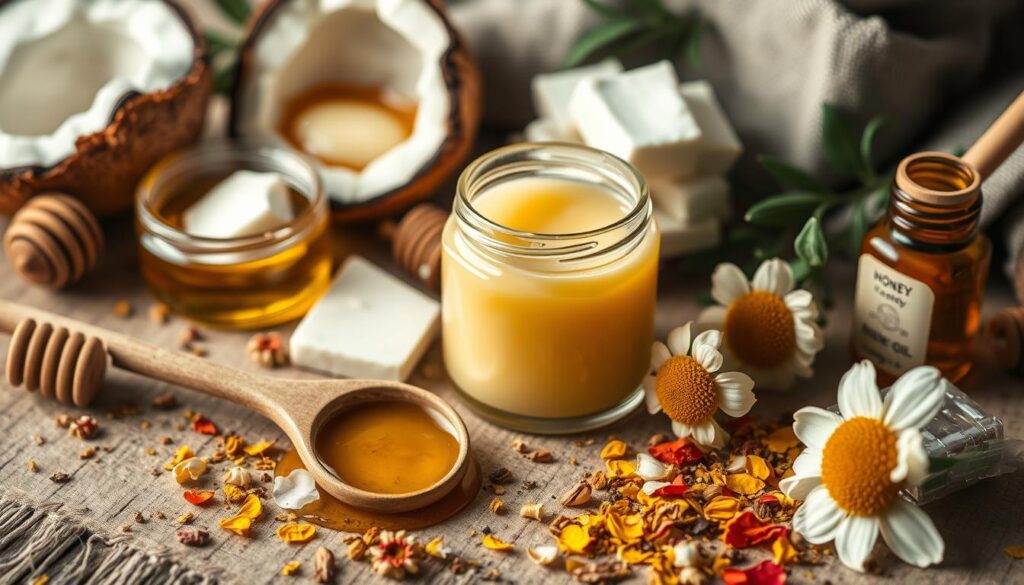How to Winter-Proof Your Lips: Stop Chapping for Good!
Did you know that over 50% of adults will experience skin tags at least once in their lifetime? While this statistic may not directly relate to lip health, it highlights the importance of taking proactive measures to maintain our skin, especially during the harsh winter months. Chapped, cracked, and peeling lips are a common struggle for many, but with the right approach, you can keep your lips soft, hydrated, and protected all year round.
Key Takeaways
- Chapped lips are a common issue during the winter due to environmental factors like dry air and cold winds.
- Proper lip care, including using the right products and implementing a consistent routine, can help prevent and treat chapped lips.
- Natural and medicated lip balms can both be effective, depending on the individual’s needs and skin type.
- Lifestyle changes, such as staying hydrated and using a humidifier, can also contribute to healthier, winter-ready lips.
- Consulting a healthcare professional is recommended for severe or persistent lip issues.
Understanding the Science Behind Chapped Lips in Winter
As the cold weather sets in, many of us struggle with the dreaded problem of chapped lips. What’s behind this common wintertime woe? Understanding the science behind lip dehydration and the unique characteristics of lip skin can help you take better care of your pout.
The Role of Weather in Lip Dehydration
The primary culprit for chapped lips in winter is the combination of cold temperatures and low humidity. The dry, harsh winter air literally sucks the moisture out of your lips, leading to that uncomfortable, cracked feeling. Add in biting winds, and your lips are left vulnerable and dehydrated.
How Lip Skin Differs from Regular Skin
Lip skin is thinner and more delicate than the skin on the rest of your face. It lacks the protective outer layer, or stratum corneum, that helps retain moisture in regular skin. This makes lips more prone to dryness, irritation, and damage from environmental factors.
Environmental Factors Affecting Lip Health
Beyond the weather, other environmental elements can contribute to chapped lips in winter. Indoor heating systems, for instance, strip moisture from the air, further dehydrating your lips. And extended sun exposure, whether from skiing, snowboarding, or simply walking outside, can lead to painful sunburned lips.
Understanding the science behind chapped lips is the first step in developing an effective lip care routine to combat the causes of chapped lips during the cold season. With the right knowledge and products, you can keep your pout healthy, hydrated, and protected all winter long.
Common Causes of Lip Damage During Cold Seasons
As the temperature drops and the air becomes drier, our lips become more susceptible to damage. Exposure to cold, windy conditions and harsh sun can wreak havoc on the delicate skin of our lips, leading to a cracked lips remedy or dry lips treatment becoming a necessity. Understanding the common causes of lip damage during the colder months is the first step in preventing and treating this pesky problem.
- Exposure to cold air: The harsh, dry winter air can strip moisture from our lips, causing them to become chapped and cracked.
- Wind exposure: Blustery conditions can exacerbate the drying effects of cold air, leading to even more severe lip damage.
- Sun exposure: The sun’s UV rays can be just as damaging to our lips as they are to our skin, causing sunburn and peeling.
- Dehydration: When the body is not adequately hydrated, the lips are one of the first places to show the effects, leading to a cracked lips remedy being needed.
- Licking lips: While it may provide temporary relief, the act of licking our lips can actually worsen the issue, leading to more dryness and irritation.
- Certain medications: Some prescription and over-the-counter medications can have a drying effect on the lips, making them more prone to chapping and cracking.
By identifying these common causes of lip damage, we can take proactive steps to protect our lips and prevent the need for a cracked lips remedy or dry lips treatment during the cold winter months.
Essential Winter Lip Care Products
As the winter chill sets in, keeping your lips soft, supple, and moisturized becomes a top priority. Investing in the right lip care products can make all the difference in preventing and treating chapped lips. Let’s dive into the essentials for your winter lip care routine.
Natural vs. Medicated Lip Balms
When it comes to lip balm, you have the choice between natural and medicated formulas. Natural lip balms, often containing ingredients like beeswax, shea butter, and vitamin E, work to hydrate and nourish your lips without any harsh chemicals. Medicated lip balms, on the other hand, can provide relief for severely chapped or cracked lips with active ingredients like menthol or salicylic acid.
Best Ingredients to Look For
- Beeswax – Helps seal in moisture and create a protective barrier on the lips.
- Shea Butter – An ultra-moisturizing ingredient that deeply nourishes the delicate lip skin.
- Vitamin E – An antioxidant that helps soothe and heal dry, irritated lips.
- Hyaluronic Acid – Draws moisture into the lips, keeping them plump and hydrated.
- Ceramides – Strengthen the lip’s natural barrier to prevent moisture loss.
Products to Avoid
Steer clear of lip care products containing artificial fragrances or alcohol, as these can be drying and irritating to the delicate lip skin. Additionally, be mindful of lip glosses and high-shine formulas, as they can actually trap moisture and lead to further chapping.

Remember, consistent and targeted lip care is crucial for maintaining healthy, hydrated lips throughout the winter months. Invest in a few essential lip care products and incorporate them into your daily routine for optimal lip protection and nourishment.
Tips for Preventing and Treating Chapped Lips
Maintaining healthy, hydrated lips is crucial during the cold winter months. To prevent and treat chapped lips, follow these valuable tips:
- Stay hydrated by drinking plenty of water throughout the day. Proper hydration from the inside out can help keep your lips moisturized.
- Apply lip balm regularly, especially before going outdoors. Look for balms containing natural, nourishing ingredients like beeswax, shea butter, or vitamin E.
- Use a humidifier indoors to add much-needed moisture to the dry winter air and prevent lip dehydration.
- Protect your lips from sun damage with SPF-infused lip products, even on cloudy days. UV rays can exacerbate chapping.
- Avoid licking or biting your lips, as this can further irritate and dry out the delicate skin.
By incorporating these simple yet effective tips into your daily lip care routine, you can successfully prevent and treat chapped lips, keeping your pout soft, smooth, and healthy all winter long.
Creating an Effective Daily Lip Care Routine
Maintaining healthy, moisturized lips requires a consistent lip care routine. By incorporating a few simple steps into your daily regimen, you can effectively combat chapped, flaky lips and keep them soft, supple, and nourished all season long.
Morning Lip Care Steps
Start your day with a gentle lip exfoliant to slough off any dry, dead skin. This helps prepare your lips for the nourishing products to follow. Gently massage the exfoliator onto your lips using circular motions, then rinse. Follow up with a creamy, hydrating lip care routine to lock in moisture and protect your lips throughout the day.
Night-time Lip Protection
Before bed, apply a thick, moisturizing lips balm or overnight treatment to deeply condition and repair your lips while you sleep. Look for formulas infused with nourishing ingredients like shea butter, beeswax, or natural oils to create a protective barrier against the elements.
Weekly Lip Treatment Schedule
In addition to your daily lip care routine, incorporate a weekly intensive treatment to provide an extra boost of hydration and nourishment. This could be a lip mask, overnight lip sleeping mask, or an exfoliating lip scrub. Consistent use of these products will leave your lips feeling soft, smooth, and healthy.
Remember, the key to maintaining lip care routine is consistency. Stick to your daily lip care regimen and you’ll be on your way to winter-proofing your pout in no time.
Natural Remedies and DIY Lip Treatments
Chapped and cracked lips can be a frustrating problem, especially during the harsh winter months. However, you don’t always need to rely on store-bought products to find relief. Instead, consider trying some natural remedies and DIY lip treatments that can help soothe and hydrate your lips.
Homemade Lip Scrubs
Create a gentle exfoliating lip scrub using ingredients you likely already have in your kitchen. Mix together honey and sugar to gently buff away dead skin cells and reveal softer, smoother lips. Apply the scrub to your lips, let it sit for a few minutes, then gently rub it in before rinsing.
Hydrating Lip Masks
For an intensive moisture boost, try making a DIY lip mask with nourishing ingredients like avocado and olive oil. Mash up a ripe avocado, mix in a teaspoon of olive oil, and apply the mixture to your lips. Let it sit for 10-15 minutes before wiping it off for soft, supple lips.
Natural Lip Oils
- Coconut oil and almond oil are both excellent natural remedies for cracked lips. Apply a small amount of either oil directly to your lips, allowing it to deeply hydrate and soothe the delicate skin.
- You can also make a simple lip balm by combining melted coconut oil, beeswax, and a few drops of your favorite essential oil.
Soothing Cucumber Slices
For an instant cooling and calming effect, try placing thin slices of cucumber directly on your lips. The natural compounds in cucumber can help reduce inflammation and provide temporary relief from irritated, chapped lips.
By incorporating these natural remedies and DIY lip treatments into your routine, you can say goodbye to cracked lips and hello to soft, hydrated lips all season long.

When to Seek Professional Help for Severe Lip Issues
While simple home remedies and over-the-counter products can help manage minor dry, chapped lips, there are times when it’s essential to seek professional medical attention. Persistent dryness, bleeding, or severe pain in the lip area may signify a more serious underlying condition that requires diagnosis and proper treatment.
Signs of Serious Lip Conditions
- Chronic, severe dryness that doesn’t improve with regular lip care
- Cracked, bleeding, or painful lips
- Swelling, blisters, or sores on the lips
- Changes in lip color, texture, or appearance
Treatment Options Available
A dermatologist can provide specialized treatment for severe or persistent lip issues. Depending on the diagnosis, they may prescribe medicated ointments, creams, or even procedures like laser therapy to address the root cause of the problem. In some cases, they may also recommend dietary supplements or changes to improve overall lip health.
Preventive Medical Care
Regular visits with a dermatologist can help prevent and address severe lip problems before they worsen. They can assess the health of your lips, identify any underlying conditions, and provide personalized guidance on maintaining optimal lip care, especially during the dry, winter months. By taking a proactive approach to your lip health, you can avoid the discomfort and potentially serious complications of untreated lip issues.
| Product | Petrolatum Content | Additional Ingredients | Potential Drawbacks |
|---|---|---|---|
| Aquaphor | 41% petrolatum | Humectants (glycerin, panthenol), emollients (lanolin alcohol, ceresin, mineral oil) | Lanolin can cause allergic reactions in some individuals |
| Vaseline | 100% petrolatum | None | Considered safer for use on open wounds due to heavy-duty barrier protection |
Lifestyle Changes to Protect Your Lips
Maintaining healthy, supple lips is not just about your lip care routine. Your overall lifestyle choices can also have a significant impact on the condition of your lips, especially during the harsh winter months. By making a few simple adjustments, you can effectively prevent and treat chapped lips causes.
Quitting smoking is an excellent first step towards healthier lips. Smoking can severely dehydrate the delicate skin on your lips, leading to dryness, cracking, and even bleeding. If you’re a smoker, consider kicking the habit to improve your overall lip health.
In addition to quitting smoking, focus on maintaining a balanced, nutrient-rich diet. Foods rich in vitamins A, C, and E, such as citrus fruits, leafy greens, and avocados, can nourish and protect your lips from the inside out. Stay hydrated throughout the day by drinking plenty of water, as dehydration can exacerbate chapped lips causes.
When venturing outdoors during the winter, make sure to protect your lips from the harsh elements. Wear a scarf or face mask to shield your lips from the cold, wind, and dry air, which can all contribute to chapped lips causes. By taking these simple lifestyle steps, you can keep your lips soft, supple, and winter-ready.
Conclusion
Winter-proofing your lips is a comprehensive process that requires a combination of proper care, protection, and lifestyle adjustments. By following the tips outlined throughout this article, you can maintain soft, healthy lips throughout the cold season and beyond.
Incorporating the right winter lip care products, establishing a daily lip care routine, and making lifestyle changes to shield your lips from environmental factors can all contribute to preventing and treating chapped lips. Remember, addressing the underlying causes of lip damage is crucial for achieving long-lasting results.
With the right approach, you can bid farewell to the discomfort and unsightly appearance of chapped lips, and welcome the winter months with confidence and a radiant smile. Embrace these strategies, and let your lips be your best accessory this season.







